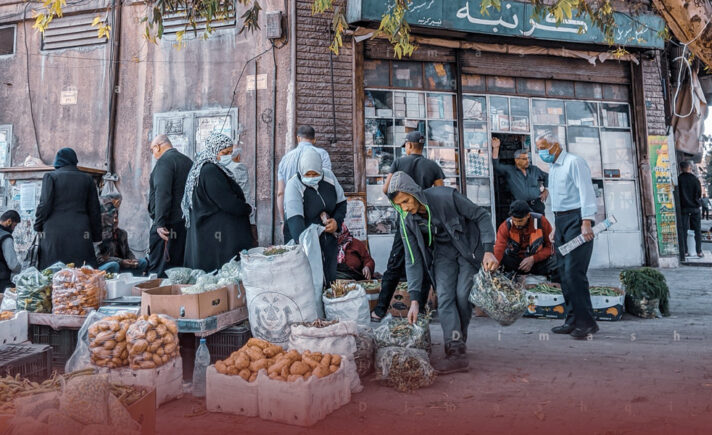“Idlib: A fragile truce and ongoing human catastrophe” (2 September, 2019). Friday, 30 August, saw numerous demonstrations break out across Idlib and West Aleppo Province, the largest taking place at the Bab al-Hawa border crossing with Turkey, where demonstrators breached the Syrian side and made for the Turkish one, demanding that Ankara either stop the ongoing slaughter by Assad regime and Russian forces in northern Syria, or open its doors to refugees. Turkish border guards responded by firing tear gas canisters and water cannons on the demonstrators, and live rounds into the air. A similar scene was witnessed at the Atmeh border crossing, while additional protests against the bombardment were held in Ma’arrat al-Nu’man, Idlib City, al-Atarib, and elsewhere. On the same day, Russia declared a unilateral ceasefire on behalf of the pro-regime alliance starting Saturday, calling on opposition brigades to adhere to the same. At the time of writing, this ceasefire had largely held, though it was not expected to endure much longer. For more, see our full report (Arabic).
“Libya: The democratic colonel’s state” (2 September, 2019). Fierce battles have raged for months outside the Libyan capital Tripoli, with both of the two main parties to the conflict, the “Operation Dignity” forces led by Khalifa Haftar, and their National Accord Government antagonists, declaring their commitment to a fight which shows no sign of ending soon. For a detailed examination of how developments arrived to this point, and an analysis of a possible exit route, see our full article (Arabic).
“Bombing and displacement in the town of Hass” (3 September, 2019). Despite the ceasefire announced in northern Syria Saturday, the streets of the town of Hass in southern Idlib Province remained almost empty, according to local writer Faisel Okla, in light of the town’s bitter experience with ceasefire violations in past years. While most of the town’s 30,000 residents have left their homes, moving north to flee deadly aerial and rocket bombardment by the Assad regime and its Russian ally in the largest wave of displacement the town has yet seen, some have opted to remain against all odds. For profile of the town’s recent history and the luckless fate of its people, see our full article (Arabic).
“Are Turkish telecom companies exploiting Syrians?” (4 September, 2019). Shortly after the Turkish army entered Syrian territory in March 2017, the Turkish telecom companies Turkcell and Türk Telekom followed it into areas under its control. Today, locales including Afrin, Azaz, al-Bab and Jarabulus depend entirely on these Turkish companies for their telecommunications, due to the destruction of the original Syrian telecom infrastructure. These thousands of Syrian users of Turkish telecom networks often face forbiddingly high costs; being obliged, for example, to purchase a new line every three months if they lack valid Turkish documentation (as they typically do if they reside inside Syria). For more, see our full report (Arabic).
“The indispensable lesson” (5 September, 2019). Murhaf Abd al-Hay reviews a short film by the director Yaman Antabli that recently circulated on YouTube, tackling themes of ideological brainwashing of children by the Assad regime, and the latter’s violent totalitarianism more generally. For more, read the full review (Arabic).
“The heavy price of Ankara’s contradictions” (6 September, 2019). For some time now, Turkey has tried to reconcile its traditional alliances with the West and its NATO partners, on the one hand, and its increasingly warm relations with Russia on the other. Recent developments in Syria, however, suggest it has succeeded only in angering the former, while making itself powerless to oppose the policies of the latter. Ankara has misplayed its geostrategic hand—and Syrians, once again, are paying the price. For more, see our full article (Arabic).





